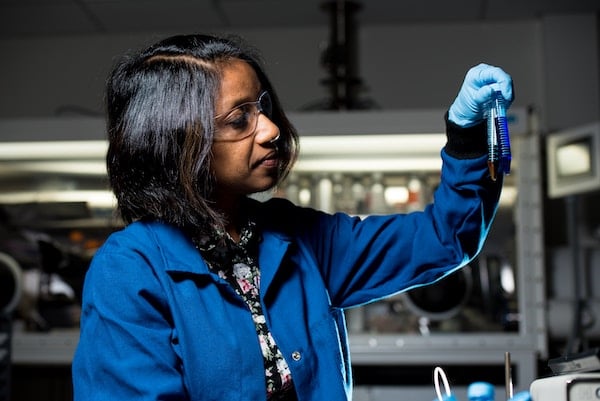Published on
How Educator Externships Prepare Today’s Students for Tomorrow’s Workforce

Commonly heard in K-12 and collegiate classrooms across the nation is the age-old question, “When will I ever use this?” Students often struggle to connect the dots between traditional classroom curriculum and future workplace or life applications.
To help Iowa educators address this question, the Iowa Governor’s STEM Advisory Council offers real-world, hands-on workplace experiences for educators in their own backyard through the Iowa STEM Teacher Externships Program.
During six-week immersions in business and industry during the summer, educators contribute to workplace needs while gaining invaluable insights about how specific educational disciplines translate into the world of work.
STEM Teacher Externship experiences vary based on the educator and business. A mathematics educator helped develop an equation to improve efficiency in production. A chemistry educator assisted with streamlining a data analysis process for monitoring water quality. An industrial technology educator worked on an engineering team that designed a manufacturing assembly line.
These authentic work-based learning experiences are changing how educators teach and in turn having a profound impact on the preparation of Iowa’s future workforce.
The expansion of externships to faculty at community colleges, liberal arts colleges and research universities could similarly modernize lessons, deepen instructors’ knowledge base and provide relevant applications to classroom content. Especially valuable would be the application of this model to teacher-preparatory faculty in the STEM disciplines.
As referenced in my book Creating a STEM Culture for Teaching and Learning, an analog has been put into practice at Harvard Medical School. An influx of application and critical thinking opportunities have been implemented in courses for medical students, shifting away from the more traditional techniques of lectures and memorization.
Applied to the education field, education majors could be trained by higher education institutions to incorporate experiential learning in elementary and secondary curriculum. This approach would produce educators and, ultimately, students with a more comprehensive understanding of how disciplines intersect in the real world, richness in critical thinking and relatability of skills to needs of the community. Workplace knowledge, skills and abilities are evolving exponentially.
It is imperative that we in education reflect that evolution by staying closely connected to those awaiting our product.
Author Perspective: Government



